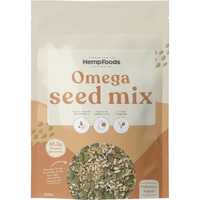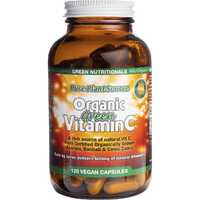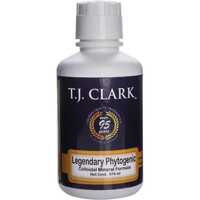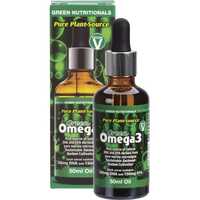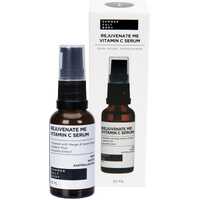As the largest organ in your body, the skin plays a central role in how you look, feel, and function. It helps to protect your internal organs, regulate your body temperature, and provide sensation as you interact with the world. There are lots of practical ways to care for your skin, from staying hydrated and eating good foods to avoiding the sun and using natural beauty products. When you pay attention to your skin, you will look better, feel healthier, and enjoy a natural glow from the outside in.
This article is about the link between good food and healthy skin. We'll describe human skin, analyse its primary functions, and look at natural foods and supplements. From healthy fats to beneficial vitamins and minerals and anti-ageing phytoestrogens, there are lots of ways to give your skin a boost.
The Largest Organ in The Body
Skin is the outer layer of soft tissue that covers your entire body. It's a prominent feature on all vertebrate animals, from reptiles and birds to amphibians and mammals. In human beings, skin tissue covers and protects underlying bones, muscles, ligaments, and internal organs. Depending on height and mass, it weighs between 3.5 and 10 kg and has a surface area of 1.5 to 2 m2. The thickness of skin also varies widely, from 0.5 mm on the eyelids to 4.0 mm on the heels of your feet.
The skin is essential for a range of life functions, from protection and insulation to temperature regulation and sensation. Its protective functions are multi-layered, guarding against external chemicals and temperature, supplying secretions to kill bacteria, and producing melanin to defend against UV light. The skin also has multiple nerve endings, which carry information about temperature, pressure, pleasure, and pain.
Your skin consists of two primary layers: the epidermis, which provides waterproofing and protection, and the dermis, which is elastic and houses nerves and blood vessels. There's also the hypodermis layer that lies below the dermis and the basement membrane nestled between the epidermis and dermis. Together, these layers are an interface through which we interact with the world. The skin is largely responsible for the sensation of touch, which is one of just five senses along with sight, sound, taste, and smell.
The skin has the following primary functions:
Protection
The skin provides a tough but elastic barrier on the outer layers of the body. It protects against multiple things, including mechanical, thermal, and physical injuries; harmful toxins and environmental agents; excessive loss of moisture and protein; and the harmful effects of UV radiation. The hair on your skin provides the first layer of defence, and each subsequent layer has a role to play.
Regulation
One of the skin’s most important functions is temperature regulation. Skin regulates cold and heat by altering blood flow, with vessels dilating and sweat produced during warm periods and vessels constricting to prevent heat escape during cold periods. While this might seem like a basic function, our ability to maintain a constant core temperature has been key to our long-term survival.
Sensation
The skin triggers a response when stimulated, with signals sent to the brain via nerves to induce feelings of pleasure or pain. Our skin allows us to interact with the environment — finding food and water, identifying pests and contagions, and recognising dangers through irritation and pain. Sensation is also vital to well-being, with feelings of touch helping us feel connected with the rest of the world.
Along with these key physiological functions, your skin also plays an important role in how you look. It's a major signifying element used to judge health and age, and it influences how you appear to others and feel about yourself. While there are tricks you can perform with makeup and tanning products, in many cases, clear and glowing skin is an accurate sign of physical health and mental wellness.
Natural Foods and Supplements for Skin Health
If you want to look after your skin, there's nothing more important than eating healthy natural foods. From fresh fruits and vegetables to powerful superfoods and supplements, everything you consume has an influence on your skin. Some nutrients have a key role to play, and the following items are among the most important:
Healthy fats
Youthful-looking skin requires healthy fat content. Omega-3 fats help keep your skin looking supple and thick, and they also have moisturising properties. These fats also help to reduce inflammation and redness in your skin and to manage various skin conditions. While not enough in isolation, omega-3 fats even offer some protection against harmful UV rays. Fatty fish — like salmon, tuna, and mackerel — is an excellent source of omega-3s. Avocados are also high in healthy fats, as are flaxseed, chia seeds, walnuts, and many plant oils.
Vitamins
Certain vitamins are known to boost skin health, including vitamins C, D, E, and K:
- Vitamin C occurs naturally in the epidermis and dermis layers of the skin. It offers a number of antioxidant and collagen production properties. Great vitamin C foods include citrus fruits, strawberries, broccoli, spinach, and supplements.
- Vitamin D is made by your skin when it absorbs sunlight. It helps to create healthy cells and assists with skin inflammation, texture, and tone. Along with small amounts of sunlight, vitamin D can be sourced from cereals, yogurt, and supplements.
- Vitamin E is produced through sebum, an oily substance in your skin's pores. It's another powerful antioxidant, and it also offers limited protection against UV rays. Vitamin E is found in many skin care products, along with nuts, seeds, and supplements.
- Vitamin K is produced in the intestines, and it's found in the liver, brain, heart, and pancreas. It's essential for blood clotting and healing, which makes it ideal for skin care purposes. This vitamin can be found in kale, spinach, supplements, and topical creams.
Minerals
Lots of minerals — including zinc, magnesium, selenium, copper, and calcium — help to boost the appearance and health of the skin. Zinc is particularly important, as it accelerates skin healing and controls the production of oils. Copper also deserves special mention, as it promotes the production of elastin and collagen. Many of these minerals also function as antioxidants, helping to protect your skin from oxidative stress and UV damage. Nuts and seeds are a fantastic source of these minerals, as are fresh fruits and leafy greens. Along with eating a healthy, balanced diet, consuming superfoods and supplements is a great way to boost your mineral intake.
Phytoestrogens
Just like other tissues in the body, skin undergoes a number of degenerative processes with ageing. As the protective functions of the skin become compromised, you're likely to experience changes to your skin's texture, tone, and colour. These processes have a range of impacts, from increased wrinkling and dryness to reduced wound healing, increased hair loss, and higher rates of skin cancer. Many of these changes are due to a reduction in epidermal thickness, along with the loss of elastic fibres and collagen content.
One of the most effective ways to counteract this natural process is to eat more phytoestrogens. These natural compounds are found in many plants, and they have a similar structure to the female sex hormone oestrogen. There are many types of plant oestrogen, and they're found in a variety of common foods. Examples include soya products like tofu and tempeh, wholegrain cereals and breads, flaxseed, and fresh fruits and vegetables. According to studies, phytoestrogens help to increase collagen and water content in the skin, protecting against oxidative stress and significantly delaying skin ageing.
Foods to Avoid for Healthy Skin
Following a healthy diet is not just about what you eat; it's also about what you avoid. If you want to enjoy the benefits of healthy, glowing skin, you may have to make some sacrifices along the way. Processed foods are a major contributor to unhealthy skin, as are ultra-sweet and salty foods, excessive meat consumption, and too much alcohol. Choose healthy fats instead of trans fats, limit refined carbohydrates, and swap deli meat products for unprocessed meats or vegetarian alternatives. Over time, unhealthy products can cause mild inflammation in your body, ageing your skin prematurely and aggravating existing skin problems.
This article is the first part of our deep dive into skin health. In the second part, we'll focus on topical beauty and lifestyle products. From after-sun lotions and moisturising creams to body scrubs and deodorants, natural skin care applications can improve the appearance, texture, and condition of your skin.
If you want to keep your skin looking young and beautiful for as long as possible, you need to pay attention to what you eat. If you want your skin to heal quickly and stay supple as you age, it's important to choose healthy foods and natural supplements. At Healthy Being, we have everything you need in one convenient location. So check out our website today or contact our team to learn more.


 Certified Organic
Certified Organic Vegan Friendly
Vegan Friendly  Vegetarian
Vegetarian Organic Ingredients
Organic Ingredients Dairy Free
Dairy Free Gluten Free
Gluten Free Keto Friendly
Keto Friendly


























